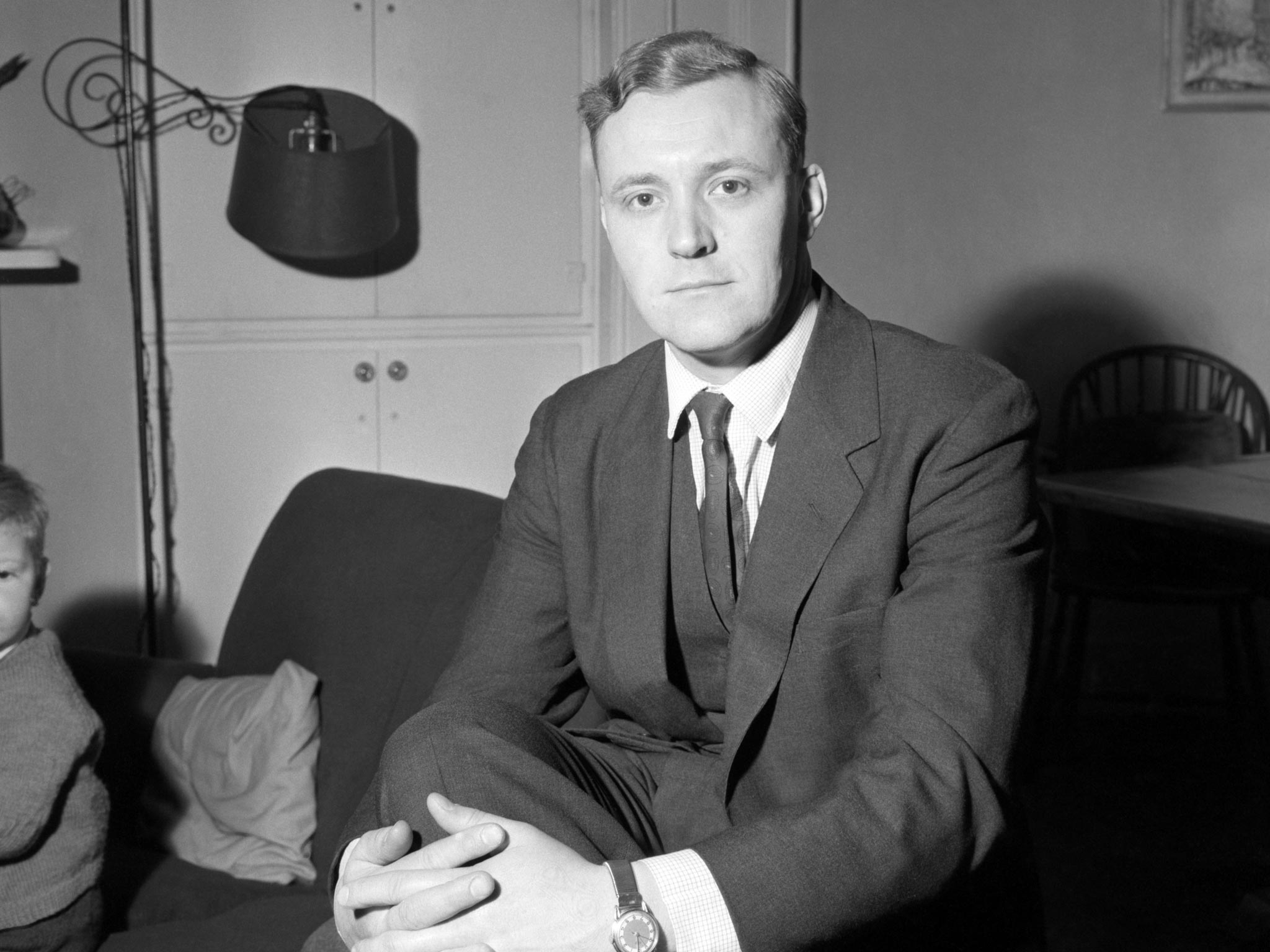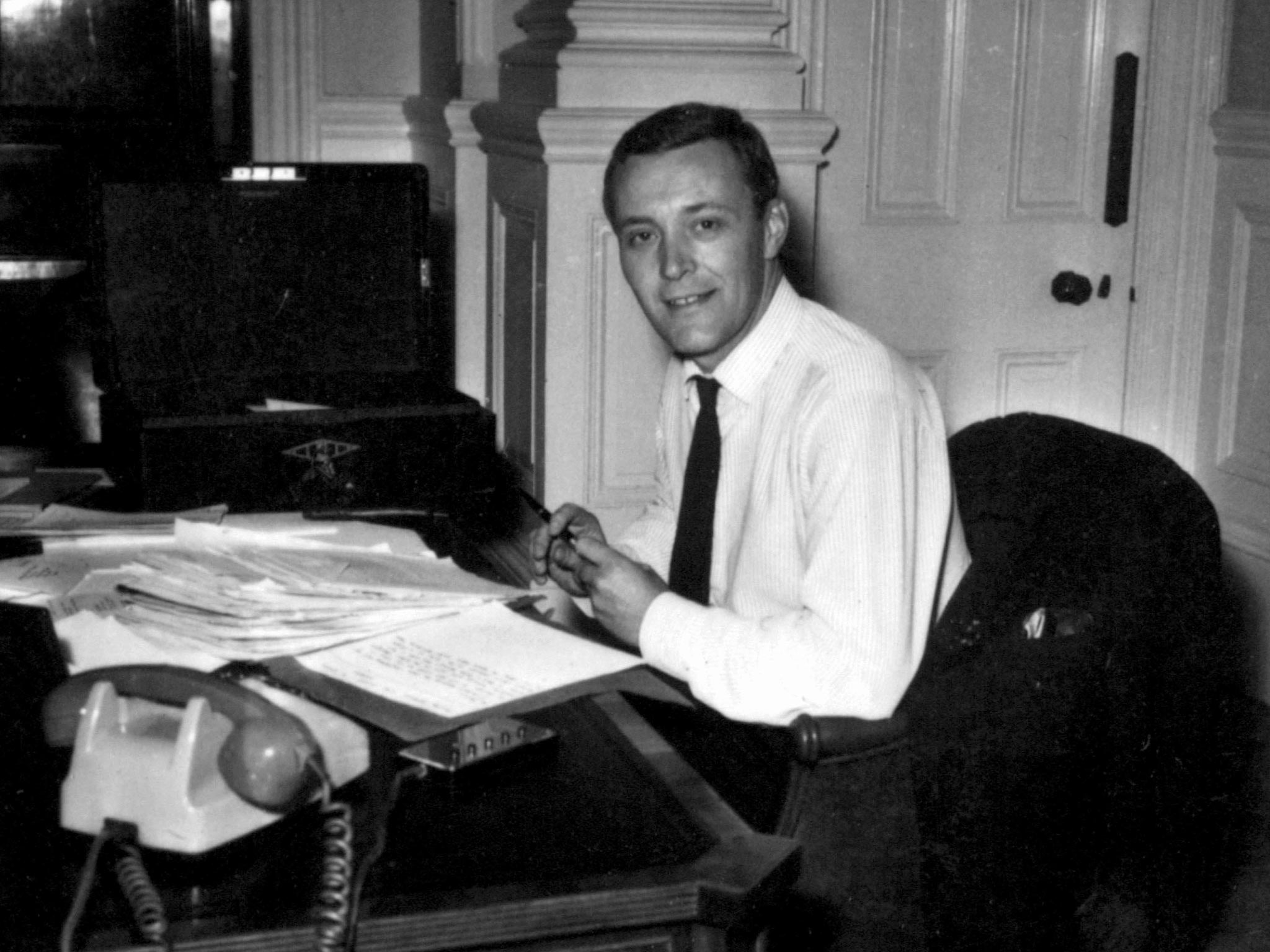Tony Benn was defiantly, stroppily, youthfully socialist to the very end
He achieved the sort of popular acclaim most politicians can only dream of – simply by sticking to his principles, says Mark Steel


The older you get, apparently, the more you abandon the daft socialist ideas of your youth to become sensible and conservative. There will never be a greater retort to this miserable myth than the life of Tony Benn.
Because somehow he became more defiantly, inspiringly, stroppily, youthfully socialist every year up to 88. If he’d lasted to 90 he’d have been on the news wearing a green Mohican and getting arrested for chaining himself to a banker.
Even more remarkable is that as he became younger with age, so did his audience. In a time when socialist groups despair at how to attract the under-50s, Benn regularly packed out a tent that held 3,000 people at Glastonbury. Anyone passing by outside who heard the roars and squeals as he appeared must have assumed the Arctic Monkeys were making a surprise appearance, but it was a man in his 80s, clambering on stage with a flask of tea.
Then he’d start with: “I’m pleased to say I’ve decided to give up protesting. Instead of protesting I’m going to take up DEMANDING instead.” And teenagers would shriek and raise their arms above their heads and clap, belly button studs wobbling as he recounted the first time he met Clement Attlee.
He filled theatres as well. In places like Telford, the box office manager would say: “The shows that went fastest this year were Tony Benn and a Led Zeppelin tribute act.” Maybe other politicians will try to copy him, before wondering why tickets aren’t selling well for “An evening with David Blunkett”.
He was introduced to socialism during the Second World War, when it became mainstream to suggest that if the nation could collectively pool its resources to fight, it should be able to do the same to provide health and housing. The introduction of the welfare state, along with the movements that won independence in the colonies, must have confirmed for him that mass movements, combined with parliament, can transform society in favour of the poorest people.
Parliament, he insisted, was the pinnacle of democracy, the triumph of radical thinking that went in a line from the early Christians, through the Levellers in the English Civil War and up to the Labour Party (although he’d have told Jesus, “I don’t think you should turn that water into wine as I’ve seen the damage alcohol can do.”).
These ideas can’t have seemed too controversial until the 1970s, when the response to global economic chaos was to blame the unions, taxes and state ownership of anything, and instead hand unrestrained power to big business and the free market.
But Benn stuck to his principles, so Conservatives called him the “most dangerous man in Britain”. He must have consistently disappointed opponents who portrayed him as a figure of evil, as they tried to convince people: “You can tell he’s trying to wreck the country: he’s got a gently persuasive lilting tone and he’s addicted to tea. He’s obviously worse than Stalin.”
Maybe it was the simplicity of his ideals that made him so endearing. If someone suggested immigration was causing our woes, he’d reply that it was odd how a businessman can move his business overseas, but the workforce shouldn’t be allowed to follow it to stay in work.
To anyone who argued that we don’t act collectively any more, he’d recount the day he was on a train that broke down for hours, and “up until then we’d all been individuals on a privatised train, but now we helped each other, lending phones and sharing sandwiches, and by the time it arrived it was a socialist train”.
But despite his reverence for Parliament, in some ways it was once he left it that he became most powerful. With an unfathomable energy he spoke at several events a day. Union meetings, anti-war benefits, campaigns against library closures – he was everywhere. If he was on Tony Blair’s asking rate for speeches he’d have been a billionaire within a month.
It wouldn’t have been surprising to find he was addressing a union conference, then speaking on the Iraq war at a children’s party, before giving a lecture about the peasants’ revolt at a sado-masochists AGM before nipping up to Leicester to appear on Question Time.
I did some filming with him once at seven in the morning, the only time he could do it. I got a taxi to his house, driven by a Pakistani man in a rage about the Iraq war. “Politicians are all crooks,” he kept saying, “The only one I trust is Tony Benn.” “Well,” I said, “strangely, we’re going to his house.” “Tony Benn? House of Tony Benn? We go to house of Tony Benn? Not Tony Benn?” he said.

So when we arrived I asked Tony Benn: “Would you mind meeting the taxi driver, he’s a huge fan of yours.” Then I went in with the driver who yelped and clasped Benn’s hand, saying “This is such a good day. Oh such a good day. My friends will not believe this.”
And Benn said: “Well I don’t know about that but I’ve got the kettle on if you’d like a cup of tea.”
This seemed to be his life. The more unassuming and down to earth he was, the more he acquired the reputation that narcissists crave.
In later years, when the establishment were unable to damage him or his reputation with their claims of his inherent evil, they labelled him a national sweetheart, and if he’d wanted to, I’m sure he could have presented Countdown and got to the final of Strictly Come Dancing.
But he ignored his new image, almost baffled by the acclaim he drew, and continued to make the case that a world in which the richest 400 have the same wealth as the poorest 2 billion is probably a bit wrong, and could do with putting right. And he did it to the end, in such a way that made anyone listening believe it was possible.
Interviewed a few weeks ago, he was asked how he’d like to be remembered. He said: “With the words ‘he inspired us’.”
Well he’s got no worries there. No worries at all.
Join our commenting forum
Join thought-provoking conversations, follow other Independent readers and see their replies
Comments
Bookmark popover
Removed from bookmarks